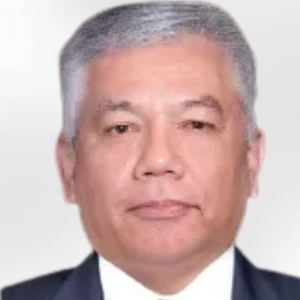
Bona Simanungkalit
Universitas Krssten Indonesia, IndonesiaPresentation Title:
The paradox of information in the digital age: The relationship between media exposure and risky adolescent sexual behavior in Indonesia
Abstract
This papers examines the contradictory relationship between the prevalence of risky sexual behaviour among Indonesian adolescents and the extensive availability of digital information.
This paper's goal is to synthesise the results of multiple studies in order to analyse the complex factors influencing this phenomenon. The methodes of this paper is a review of the literature and a synthesis of the approaches and conclusions from 44 research papers served as the foundation for this work. It uses both quantitative and qualitative methods, such as content analysis, surveys, and cross-sectional studies.
The findings show a strong and significant correlation between risky sexual behaviour and media exposure, especially social media and pornographic content. Research continuously demonstrates that increased use of social media and the internet for longer periods of time is associated with more premarital sex and other risky behaviours. Key contributing factors include peer pressure, a lack of parental supervision, and a lack of knowledge about reproductive health. Nonetheless, some research also suggests that educational initiatives and online courses can be utilised to enhance reproductive health literacy.
In summary, the paradox of information in the digital age is clear: although digital media gives adolescents access to educational materials, it also exposes them to material that normalises risky sexual behaviour. Adolescents must be guided towards responsible digital media use and receive thorough sexual education through a comprehensive approach that involves parents, schools, and the government.
Keywords: media exposure, risky sexual behavior, digital literacy, parental role, adolescent.
Biography
Bona Simanungkalit is a medical doctor and public health expert, focus on sexuality and HIV. His formal educations is a Master of Public Health in Reproductive Health from the University of Indonesia in 2003. Also deepened his knowledge through an Intensive Sexology Education at Udayana University, Bali, in 2004-5. The highest academic degree he obtained is a Doctorate in Clinical Epidemiology from the University of Indonesia in 2018. His dedication to the field of sexuality is evident from his involvement in various organizations. He has served as the Secretary General of the Indonesian Sexology Association (ASI) since 2010. Previously, he was also the Vice Secretary of ASI from 2006 to 2010. In 2013, he earned the title of Fellow of the Indonesian Association of Sexology (FIAS). His expertise is also recognized through the 1st Winner of the ASI Award in 2015. Also has experience in Drugs and Social Surveillance from the Burnett Institute and Victoria University, Melbourne, Australia, in 1999. And he has been a Consultant for Pamardi Siwi, an institution under the National Narcotics Agency, since 2004. This experience demonstrates his contributions to broader social and health issues, including those related to HIV and narcotics prevention and publications.


